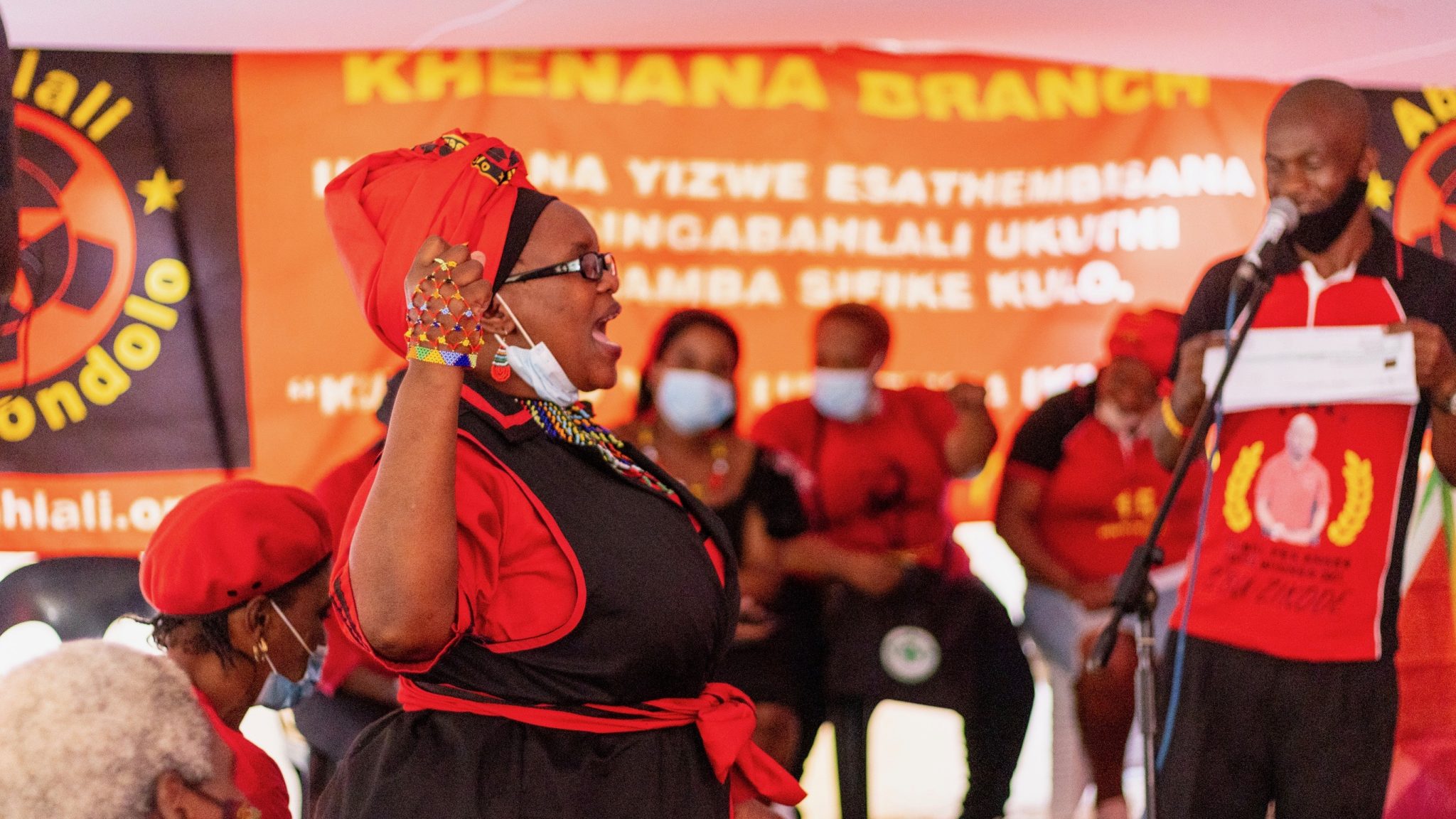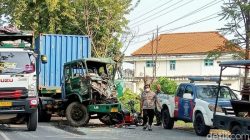The Pan African Movement – Rwanda Chapter (PAM-Rwanda) re-elected Protais Musoni last week as its Chairperson for another three-year term. Musoni has led the organisation since its re-establishment in 2015. PAM-Rwanda is committed to transforming mindsets among Rwandans and Africans in general—encouraging people to view and understand the continent through a positive, empowered lens. In an exclusive interview with The New Times, Musoni reflects on the movement’s journey, achievements, and the path ahead. He discusses the role of education in shaping the continent, the enduring struggle of Pan-Africanism, and the urgent need for united, people-centered leadership across Africa. What are the main priorities for the Pan African Movement – Rwanda Chapter in your new term? Our priority is to consolidate and strengthen the foundation we’ve already laid. We’ve established structures that reach the cell level, and in some places, even the umudugudu (village) level. This is significantly expanding our membership base. Now, our focus shifts to mentorship—helping members view global events through Pan-African lens. We want them to assess international developments critically, understand their implications for Africa, and either promote Pan-African interests or counter harmful external influences. We’ve also launched leadership training programs for youth. These are already in eight universities, and we aim to roll them out to all institutions of higher learning, as well as introduce Pan-African discussions and debates in secondary schools. Our ultimate goal is to nurture a generation that is rooted in Pan-African values—one that understands our history, critiques the present, and is committed to shaping the Africa we want. How would you explain the spirit behind the Pan-African Movement to a young person? At its core, the Pan-African Movement is about restoring the dignity of Africans. For over 600 years—through slavery and colonialism—Africans have been made to believe they are inferior. That belief has shaped how we see ourselves and how others perceive us. But it’s simply not true. Africans are not inferior. The movement seeks to reverse this damage. It’s about reclaiming our voice, our independence, and our rightful place in global affairs—whether in trade, media, commerce, or politics. Young Africans must understand that colonialism and its modern forms—neocolonialism—have left us fragmented mentally, economically, and politically. Unlike the EU or the U.S., Africa remains disconnected. We know we are Africans, but we often identify more with national borders than with a shared continental purpose. That’s where our work begins: unifying Africans not just in ideology, but through real, tangible systems—economic, infrastructural, and educational. What’s being done to shift the mindset of young Rwandans? It starts with self-understanding and self-worth. Many young people lack a solid historical foundation. Our schools haven’t always taught it well, and some families haven’t passed it down either. So, we must help youth understand where we’ve come from, what we’ve overcome, and what we aim to become—a united, prosperous Africa. We’re not against learning from others. But we must learn selectively, adapting what helps us and discarding what undermines us. Too often, through global media and film, we’re led to believe that foreign is better—when in fact, some of it is simply well-packaged junk. That’s why dialogue is essential. We need open conversations that affirm identity, build confidence, and develop critical thinking. From that foundation, young people can engage globally without losing themselves. This year’s African Liberation Day focused on an “intergenerational approach” to development. What does that mean to you? It means drawing from the wisdom of older generations while embracing the energy and innovation of the youth. In our commissions, we intentionally include members across four generations—those over 70, in their 50s, 30s, and 20s. Each brings a different perspective. The elders remember how trade worked before colonisation. The middle-aged understand regional treaties like AfCFTA. The youth bring innovation and drive implementation. We also organise evening and weekend forums—mainly in universities—where people of all ages debate topics like intra-African trade, education, peace, and innovation. These exchanges help us bridge the past and future to build an economically independent Africa. What role should Rwanda play in shaping a united, self-reliant Africa? Rwanda’s role is to first embody the Africa we envision. We must build a nation that aligns with the values of Agenda 2063 and then collaborate with others across the continent. We cannot do it alone. But we must ask hard questions: Why does Africa remain vulnerable? What must change? Tools like the internet now allow Pan-Africanists across Africa and the diaspora to connect, organise, and learn from each other. In my case, I’m involved in regional and global Pan-African forums. We all ask: Do we know where we are going? Most will say yes—to unity, prosperity, and dignity. But the challenge lies in how to get there. It starts with breaking mental barriers—tribalism, nationalism, colonial borders—and embracing a common African identity. How does PAM-Rwanda collaborate with other African bodies? What regional projects are underway? Pan-Africanism is global. It includes all people of African descent—whether in Africa, the U.S., Brazil, or elsewhere. The movement exists in five African regions and in diasporas across Europe, the Americas, and the Caribbean. When a Black person is mistreated in the U.S. due to their race, we must feel that pain too. Because their struggle is ours. Pan-Africanism demands solidarity. We have a global secretariat based in Kampala. Each African region is expected to have active organising bodies. Unfortunately, in Eastern Africa, progress has been slow due to a lack of political will. Many leaders still act as if their nation’s success can come in isolation. But economic systems exploit all of us. To counter that, we must trade more with each other, set our own terms, and build economic alliances. Regional integration is essential for Africa’s survival and dignity. Have African leaders advanced or hindered the Pan-African agenda? Historically, the Pan-African movement helped win independence across the continent. But true Pan-Africanists—like Lumumba—were often removed, either by foreign powers or internal forces. Those who replaced them were often hostile to Pan-Africanism. Figures like Mobutu and Bokassa preferred being “big kings in small kingdoms” rather than building unity. That weakened the movement, reducing it to conferences and academic circles. But SAPs in the 1980s deepened poverty and sparked a new awakening. Educated youth began asking tough questions. In countries like Rwanda, this led to new liberation movements grounded in Pan-African ideals. Today, some African leaders still fear organised Pan-African movements. They see them as threats. That’s why education is key—mass awareness will lead to a generation that produces the right leaders, who will truly push the Pan-African vision forward. How would you assess the progress of Pan-Africanism across the continent today? The Pan-African spirit never died. Look at the founding texts of most African countries—you’ll find Pan-African language there. That shows how foundational it is. What’s new is the momentum. Social media, youth conversations, and popular culture are reigniting Pan-African consciousness. Many young people already know what must be done—they just need the tools, platforms, and opportunities to act. Those still searching are also on the right path. The moment you begin to question and seek knowledge, transformation begins. How should education in Rwanda and Africa evolve to support Pan-Africanism? We must decolonise education. Much of what we teach remains irrelevant or harmful. Why should a Rwandan child study European history without first understanding African civilisations? In some private schools, children are discouraged from speaking Kinyarwanda—taught to value English or French instead. But if you don’t know your language, you lose your culture, your identity, your soul. Education must be practical and dignity-based. Why are agriculture graduates unfamiliar with actual farming? Why don’t veterinary students know how to treat animals? This colonial mindset—training for office jobs—must go. We’ve also proposed teaching Swahili and Arabic from primary school across Africa. That would foster continental communication and save the AU millions in translation costs. Even infrastructure challenges can be turned into opportunities. A Pan-African approach would see countries collaborating on roads, trade, and resource-sharing—building not just connectivity, but unity. Rwanda will next month mark 31 years of liberation. What does this day mean to you personally? Liberation Day, to me, is a continuation of the broader African Liberation Day, which has been celebrated for 62 years. Rwanda’s 31 years mark about half of that journey. I see it as a continuation because the injustices that led to Rwanda’s liberation, led by the Rwanda Patriotic Army (RPA), wouldn’t have occurred if true liberation had been achieved in 1962. If, at independence, people had rejected the colonial divide-and-rule tactics imposed by Europeans, especially the Belgians, and instead focused on uniting the people, the later conflict and liberation struggle might have been avoided. So, this day reminds me that liberation is an ongoing process. It is also a strong foundation for Pan-Africanism, because Africa as a whole is still not fully liberated. The second important aspect is the core principle of self-liberation, doing things for ourselves without waiting for others to free us. This spirit is essential for Rwandans and Africans alike. Dependence on external forces is dangerous; as our President (Kagame) often says, nobody else will do it for us, and those who want to intervene usually have their own interests. The RPA led the struggle, but it was never meant to liberate alone. It was there to mobilise the people to liberate themselves. This is sometimes overlooked. We must honor those who sacrificed, but the ultimate goal was for the people to take ownership of their liberation and change their circumstances. So, liberation is not a one-time event. It marked a shift in power and laid the foundation, but the work continues. We must keep identifying the areas in our lives and relationships that need further liberation, and work on those together. Are there any Pan-African thinkers or leaders who have influenced your journey, as a leader, a politician, and now as a Pan-Africanist? Absolutely, very many. When I reflect on my journey, I’ve drawn inspiration from a range of Pan-African thinkers and leaders. The writings of Thomas Sankara, Frantz Fanon, and Amílcar Cabral were incredibly impactful. From Southern Africa, Steve Biko’s philosophy also left a deep impression on me. But beyond the historical figures, the thinking and implementation of President Paul Kagame have been particularly revealing, and I say this having worked closely with him. It’s remarkable. You could ask anyone in cabinet: even if you’re a professor of agriculture, the President has something to teach you about agriculture. His ability to assess information quickly and accurately, and then translate that into practical, effective strategy, that’s leadership rooted in Pan-African thinking. What strikes me most is his courage to introduce bold, Pan-Africanist ideas, even when others hesitate. For example, Rwanda was among the first countries to remove visa requirements for fellow Africans and to eliminate work permits for East Africans. As a result, we’ve seen many people acquiring Rwandan citizenship, something that, in many other countries, would take years. Look at initiatives like Carnegie Mellon University Africa, the Pan-African schools of science and technology, and governance programs, they all reflect a deliberate Pan-African orientation. On peace and security too, Rwanda has shown that we don’t need to wait for external powers to act. We’ve supported fellow African nations not as mercenaries, but as partners, out of solidarity. And then there’s YouthConnekt Africa, a platform that connects and empowers African youth across the continent. Or even Rwanda’s response during the Libya crisis, offering African migrants safety and dignity when others were closing their doors. All of this demonstrates that Pan-Africanism doesn’t have to be just slogans or academic theory. It can be real, practical, and consistent. It’s also a reminder that Africans can create their own initiatives, not dictated by external powers. And when they do, yes, sometimes people become suspicious. They think, “What’s the catch?” Because we’ve been conditioned to believe that good initiatives must come from the West. But no, some things are done simply because our fellow Africans are suffering and we want to help. That’s what gives me hope, that one day, Africa will truly be free.
Provided by SyndiGate Media Inc. (
Syndigate.info
).
Support kami, ada hadiah spesial untuk anda.
Klik di sini: https://indonesiacrowd.com/support-bonus/







